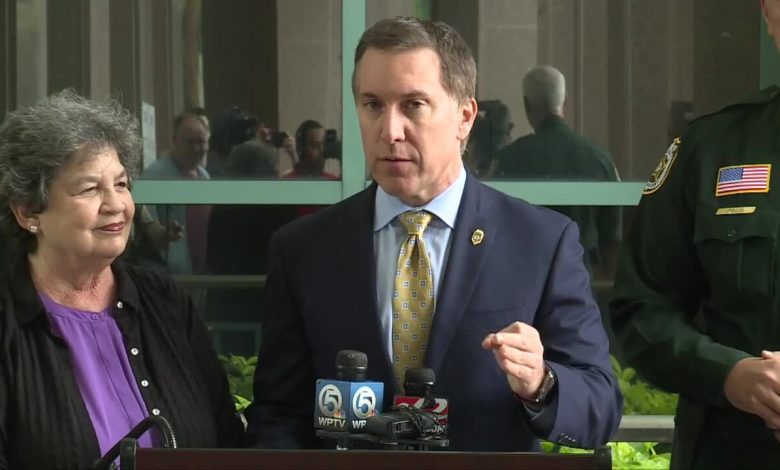Department of Justice awards PBSO, State Attorney a grant that will help solve cold cases

PALM BEACH COUNTY, Fla. — In Palm Beach County, there has been a resurgence in the endeavor to solve cold cases.
The United States Department of Justice has provided the office of the State Attorney and the Sheriff’s Department with a grant of $500,000 to be used for more modern DNA testing.
The Palm Beach County Sheriff’s Office is currently working on 489 unsolved crimes that span all the way back to 1964.
It is hoped that if detectives used more of the latest developments in DNA technology, they would be able to bring criminals to justice and bring some peace to grieving families.
“We have about 60 cases right now that we have identified a DNA source and still trying to establish a suspect,” said Major Talal Masri with PBSO.
The major, along with the district’s Congresswoman Lois Frankel and the state attorney’s office’s Dave Aronberg, made the announcement that the funds would be used to purchase additional cutting-edge DNA testing, which is essential to the investigation, and hopefully provide the investigators with new leads.
“This grant is important because with new technology we now have the ability to increase the DNA profiles to allow law enforcement to test DNA that could not be tested before,” said Aronberg.
“Unsolved homicides lead to grieving families and anxious neighbors, and it sends the wrong message to would-be criminals,” added Frankel.
Because of the grant money, there will be further genetic genealogy testing. It is where DNA samples that have been collected are sent to private labs and put into a public database to look for possible matches that could help identify people who are suspected of murder.
A prior grant that was given to the sheriff’s office assisted in the identification of suspects in nine separate incidents. Sheila Keen Warren is a key figure in the “killer clown” investigation, which is one of these cases. In 2017, deputies conducted an arrest on her, and she is now being held in pretrial custody.
“This grant allows us to do better at collecting it and also to do better at testing it but the flip side is that it’s expensive,” said Aronberg.
The cost of the tests is estimated to be between $5,000 and $10,000 for each individual instance, according to the officials.
In addition to getting the money, a check for $150,000 was given to the PBSO to be used for community policing.




